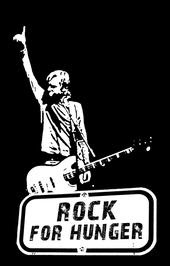Independent Music in Film
11.29.2007
In today's technologically driven world, independent musicians have an infinite number of outlets to display and promote their music. Now that websites like MySpace, Purevolume, and Virb (just to name a few) exist, independent artists have been given the opportunity to "level the playing field" with those prestigious radio guys. The problem, however, lies in the fact that the endless amount of DIY work far outweighs any successful return. So, how can independent musicians gain recognition and popularity without having to deal with the over-saturated world of online promotion? The answer lies in one word: "licensing."
Within the last few years, independent artists have been glorified on film, television, and commercials more than ever before. Teenage-based TV shows such as
So, how does this process work? How can independent films play a bigger role in the support of independent music? Well, the potential lies in the budget of the film. Independent films are generally projects with smaller budgets than the expensive blockbuster pictures. This fact alone gives the independent film the advantage to be the project that partners with some deserving undiscovered musicians. After hiring a music supervisor, the individual in charge of finding, choosing, and negotiating license deals for all of the necessary tunes, the production company will only allocate a certain amount of money for the movie's melodic audio features. With this being said, it is now the supervisor's job to hunt down eligible artists (Artists that have deals with publishing companies) for the lowest cost possible. Similar to any business, the more popular and in-demand a song is, the more expensive it will be. So, instead of choosing Beastie Boys' "Girls," the supervisor may be forced to license Johnny Nobody's "Women."
Obviously, the process involves a great deal of contracts and numbers, but in the end the supervisor obtains the rights to use these unfamiliar and inexpensive songs in the movie. Although it may be said that the process is a "Catch 22" (A band can't be licensed until they have a licensing deal with a company), licensing material to these outlets have proven to be one of the easiest and most rewarding elements of income for musicians. Not only is the band given a chance to share their music with the world, they are also getting paid for it. In this way, licensing have opened new doors for every aspiring independent musician and has ultimately given them the chance to DIY for the rest of their successful careers. Independent films will forever have the opportunity to continue shifting the music industry away from the larger record companies.
Posted byLogan Lenz at 08:33 1 comments
Labels: film, independent film, indie, music
Logan Lenz Interviews Maroon 5
11.06.2007
By Logan Lenz
(Published in RAG Magazine)
By the time this goes to press, Maroon 5 will have already rocked the Palace of Auburn Hills in Detroit; the event serving as the launching of the group's highly anticipated U.S. fall tour. During a national teleconference with vocalist Adam Levine and guitarist James Valentine, RAG Magazine was able to find out more about the tour's secret details, the scoop on their latest album It Won't Be Soon Before Long, and what it is like to be "The Best American Band."
RAG: I read in the new Rolling Stone about your jam session with Prince, so I have to ask you about this. How did it come about, what happened, and what did you think of it all?
Levine: We were actually having a jam session at my house and just a random summer night and everyone came over and played music. I had invited all the musicians I knew and he was one of them, so he ended up stopping by with his band. He kind of took over, obviously, and started playing for a little bit and there was some sort of issue. There was some technical problem with one of the amps or something. He immediately put the guitar down and said, "Let's go to my place and jam there. Bring your party over to my house." So that's what we did and it was just incredible. It was pretty --.
Valentine: The greatest moment of my life … Prince trading solos.
Levine: Yes, you kept up with him, too. It was good.
Valentine: Thanks, Adam.
I was curious about how The Hives got chosen to be the opening act on the tour. Did you guys handpick them?
Levine: We love The Hives. They're a great band and we wanted to get a really good,
energetic, amazing live act. There are often discrepancies between records and live shows and you really never know who's a genuinely good band. They are just so great, literally. I think they're best suited for playing live and that's what the show's about, so we wanted to get the best one out there.
Valentine: It's going to raise the bar for us every night because they're going to be really tough to follow. So I think it will force us to step up and bring our A game.
Levine: They're the best Swedish band; we're the best American band.
Talk a little about how you're going to approach the show this time, in terms of repertoire. What is the production is going to be like?
Levine: We're definitely going to be playing a healthy amount of new material. We've been working on a list and some things like that in production and lighting and all that. We really want it to be straightforward. We don't want there to be too many bells and whistles because we don't want to detract from the music. That's obviously really important to us. We're going to stretch out our show a little bit and do things that we didn't do last time. When you have one album, you really need to spread it. You've got to play every song, which may not necessarily be appropriate for the set. Now that we have twice as much material I think that we're going to really be able to diversify the way the set comes off live. I can't wait. It's going to be a thousand times better than the first.
What are you doing to make the tour environmentally friendly? I know you're teamed up with Global Cool for this one.
Levine: We're doing a lot of things. But I think the coolest thing that we're doing is giving a dollar from our ticket sales to Global Cool to make the entire experience green, meaning everything from transportation – we personally are using bio-diesel in the buses, actually a pretty high percentage bio-diesel. We're just going to do everything we possibly can. It's still not easy, obviously, because there are just a lot of limitations and there are a lot of things that haven't been made very easy, but it's going to be the greenest tour it can be. And that's all we can strive for.
The new album's title comes from a touring expression, doesn't it?
Levine: It does. Somebody said it. Who was it? We think it might have been Jesse, but it was just one of these strange, nonsensical things that winds up making a lot of sense in some weird, abstract way. I guess it's the closest thing to what a Ringo-ism (The Beatles) would have been. When he said, "It's been a hard day's night." You kind of understand what he's saying, but you don't really at the same time. And it was just really apropos, as far as what was going on. We had been on tour forever, not knowing when it was going to end, but kind of being forced to accept the fact that it was going to last a lot longer. We were all very burnt out. It was just one
of those mantra-like things that had a lot of significance for us. What better to name our second record?
Do we know what the next single is going to be yet?
Levine: The next single is "I Won't Go Home Without You."
How do you feel the new album differs stylistically from Songs About Jane and what were you hoping to accomplish with it?
Levine: We made our first record in 2002. We were in our early 20s and then we went through a lot with touring and growing up a little bit. Our musical tastes all kind of shifted a little bit. I think the most important thing with making records is that you reflect exactly where you are at that moment. I think the album is a bit more futuristic, but also a bit more retro in some ways. It's more influenced in some ways, but it's also more unique in some ways. I don't know, it's a weird thing. It seems like the right step for us to have taken.
What is the strangest place either one of you has heard one of your songs?
Valentine: That's a good question. Someone was somewhere really strange like in East Timor or somewhere and there were speakers attached to a Jeep and they were driving through this village playing "This Love." I wish I could have been there to experience that.
What kind of impact do you want to make on the culture? What would you say your goal is now?
Levine: Bands get big and they kind of develop these grandiose opinions of themselves and what they want to do. Then they start answering questions like this, which is impacting the culture and you think, "All right, let's backpedal for a minute." We craft songs and we love to play them. And we hope to inspire people and make them smile or make them think or make them do whatever they're going to do, or dance maybe. But we're certainly not reinventing the wheel or necessarily putting a flag anywhere. We just are kind of a unique group of guys that just want to continue to play music. As far as any kind of impact, we won't know that for another 20 years. Right now, we just have to make the right decisions and write good songs that people love and see what happens.
When you guys do talk about this kind of longevity and such, obviously there's a little bit of pressure in this situation, bringing out the second album after Songs For Jane did so well. Do you feel like you're passed anything that would be considered a sophomore slump at this point?
Levine: Yes, I think so. I think that there's varying degrees of sophomore slumps. I think we've avoided Spin Doctors territory, but we haven't just disappeared off the face of the earth. But I think at the same time, we have a lot more to prove. We always are very hard on ourselves, I think in a productive way, in a positive way to keep on and to establish a career. That's what we want. We want a career; we want to be around for a while.
| |
Posted byLogan Lenz at 23:52 0 comments


